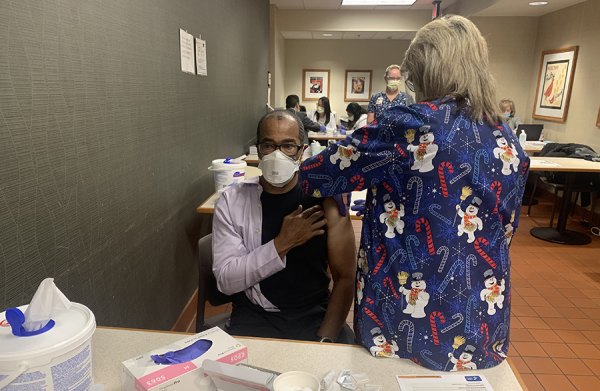
“As the COVID-19 pandemic has lasted much longer than we hoped and with cases continuing to surge in our communities, the vaccine will help us ensure our healthcare personnel remains healthy, safe and ready to provide care to all who need it,” said Laurie Taggart, patient care executive of Adventist Health in the Central Valley. “We are confident that the vaccine will change the trajectory of the pandemic.”
Vaccinations will occur at all four hospitals from December 21 to 23 and require a second booster dose 21 days after the initial dose. Vaccines are being rolled out in phases and will be made widely available to the public later in 2021. Like all vaccines, the Pfizer COVID-19 vaccine was rigorously tested for safety before being approved for Emergency Use Authorization (EUA) in the United States.
“When you look at the risk-benefit analysis, taking the vaccination is better than getting the virus,” said Dr. Frank Gavini, Medical Officer of Adventist Health in the Central Valley. “I am leading by example, and all physicians, as well as healthcare workers, should be taking the vaccine to protect themselves from potential complications of coronavirus.”
A messenger RNA (mRNA) vaccine, the Pfizer vaccine protects against infectious diseases by teaching cells in the body how to make a protein that triggers an immune response. The immune response, which produces antibodies, is what protects against COVID-19. The vaccine does not contain a live virus and does not carry a risk of causing disease in the vaccinated person.
While vaccinations begin taking place across the Central Valley, state, and nation, community members are encouraged to continue practicing safety precautions, including wearing masks, physical distancing of at least 6 feet, and washing their hands frequently.
Additional information about the COVID-19 vaccine may be found online at cdc.gov/coronavirus. Questions about community distribution of the vaccines may be directed to county health departments.